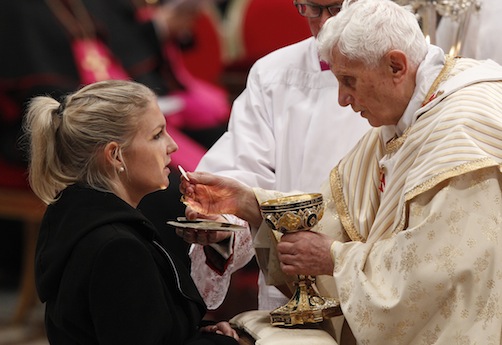Ummmmm....no. Read "From Sabbath to Sunday" by Samuel Bacchiochi. (I posted a link earlier in this thread). It lays out the position of the SDA church which is that prior to Constantine some Christian communities, most notably Rome, began observing Sunday as a way to differentiate between themselves and the persecuted Jews. Constantine passed the first law requiring Sunday observance throughout the empire.
You know what I find laughable? You're accusing Adventists of "legalism" while ignoring the true legalism in this thread. Legalism is when you are trying to impose law on others. Choosing for yourself to keep Sabbath (or Sunday for that matter if that's what you believe) is not legalism. It's not legalism to say adultery is wrong. It's legalism to say that adulterers should be stoned.One bizarre aspect of both these sectarian groups, which have their roots in Independent Baptist and Revivalist Churches, is that they both come to these opinions based on conspiracy theories about the early church councils. Both churches have essentially revived ancient heresies, the Jehovah's Witnesses reviving Arianism, whereas the Adventists are essentially proponents of classical Chiliasm with a side order of Judaizing legalism. You can defeat almost every argument that an Adventist makes for their innovative practices simply by opening up Galatians, the Jehovah's Witnesses are somewhat harder to convince with scripture since they have their own official translation which purposefully rewords much of the Gospel of John and a few other key NT passages to erase any trace of Trinitarian language.
I had to look up Chiliasm. I'm more familiar with the term "millennialism." So I take it you don't believe in the millenium at all? What do you do with Revelation 20:1-6? Just ignore it? (https://www.biblegateway.com/passage...36&version=ESV)
Site Information
About Us
- RonPaulForums.com is an independent grassroots outfit not officially connected to Ron Paul but dedicated to his mission. For more information see our Mission Statement.






 Reply With Quote
Reply With Quote

 What's insulting about it? That's an odd reaction. And if you have a theological dictionary that you would like to quote from then please post it. But you can't just make up meanings for words to suit the argument you are trying to make.
What's insulting about it? That's an odd reaction. And if you have a theological dictionary that you would like to quote from then please post it. But you can't just make up meanings for words to suit the argument you are trying to make.






Connect With Us